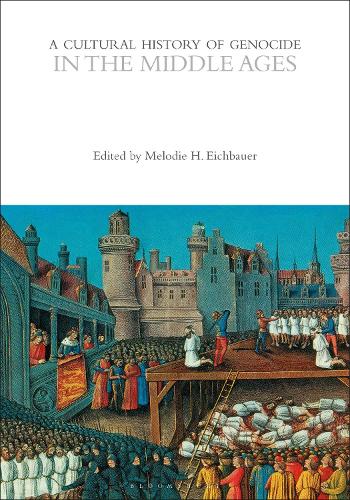
A Cultural History of Genocide in the Middle Ages
(Hardback)
Publishing Details
A Cultural History of Genocide in the Middle Ages
By (Author) Professor Elisa von Joeden-Forgey
Bloomsbury Publishing PLC
Bloomsbury Academic
29th June 2023
United Kingdom
Classifications
Tertiary Education
Non Fiction
304.6630902
Physical Properties
Hardback
248
Width 170mm, Height 246mm, Spine 20mm
600g
Description
The period covered by this volume, roughly 800-1400, considers genocidal massacres and actions within the context of the pre-modern state, a time when the term genocide did not yet exist. In considering rhetoric, discrimination, and political and legal marginalization that impacted the lives of particular peoples, the volume takes as its premise that genocidal practices and massacres can occur when social dynamism and political change challenges the identity of a community. The case studies analysed in the individual chapters implicitly or explicitly draw upon the frameworks of comparative genocide scholars to explore genocidal massacres in the Middle Ages as localized phenomenon, even if these isolated outbursts do not graph onto the modern definition of genocide perfectly. Each contribution considers genocide as caused by settling national, religious, and ethnic differences; genocide as designed to enforce or fulfil an ideology; and genocide as designed to colonize. Collectively the essays move beyond the number of people killed to consider the steps taken against a people to erase them from the social and cultural fabric of society. It is hoped that this volume encourages us to think both about the legal structures of genocide but also about how the term can be more inclusive and expansive.
Author Bio
Melodie H. Eichbauer is Professor of Medieval History at Florida Gulf Coast University, USA. Her research focuses on the dissemination of legal knowledge; the interpretation of law; and the ways in which social, political, and intellectual developments and trends shaped both between c.1000 and c.1500
